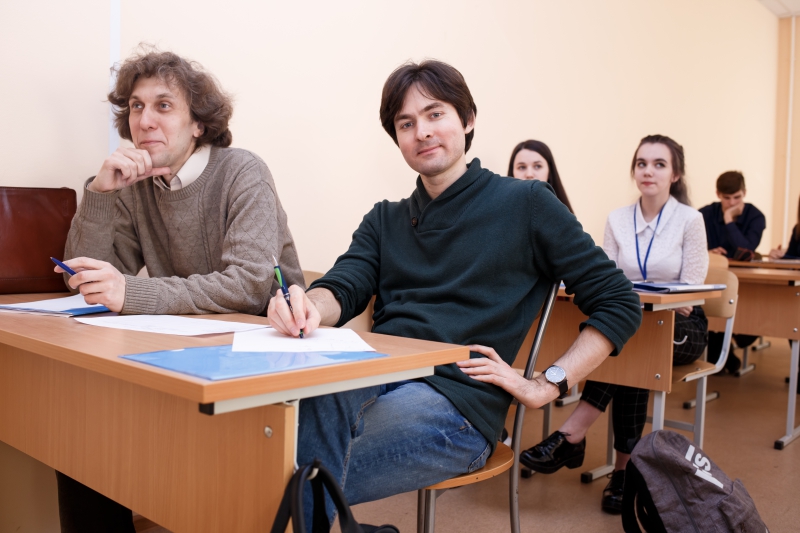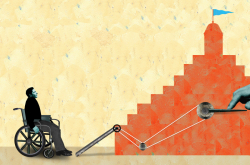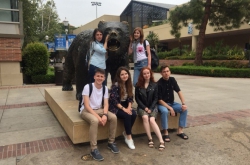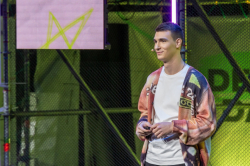Maria Lazareva, D. Mendeleev University of Chemical Technology of Russia
Project: “Transcriptional properties of Gre proteins of stress-resistant Deinococcus gobiensis bacteria”
I study stress-resistant bacteria, more specifically their ways of regulating transcription. In my project, I studied a Deinococcusgobiensis bacterium that shows the best resistance to gamma and UV radiation among all species of its genus. For one, it endures radiation of 15,000 Gy, which makes it 1,500 times more resistant than human cells. The mechanisms that allow it to survive in such conditions are yet to be studied, which is why I wanted to research them. We decided to focus on transcription, as it plays a decisive role in the future synthesis of vitally important proteins.
Our laboratory has already researched stress-resistant bacteria and their transcription factors on the example of Deinococcusradiodurans bacteria, and we expected our new results to be quite similar, as Deinococcusradiodurans and Deinococcusgobiensis are closely related. Still, we were up for a surprise, as the well-studied regulation factors demonstrated an uncharacteristic activity in Deinococcusgobiensis. We’ve conducted additional experiments in order to make sure that the properties of these regulatory proteins are strictly specific to this species. We got the latest results on the day when I left for the congress.
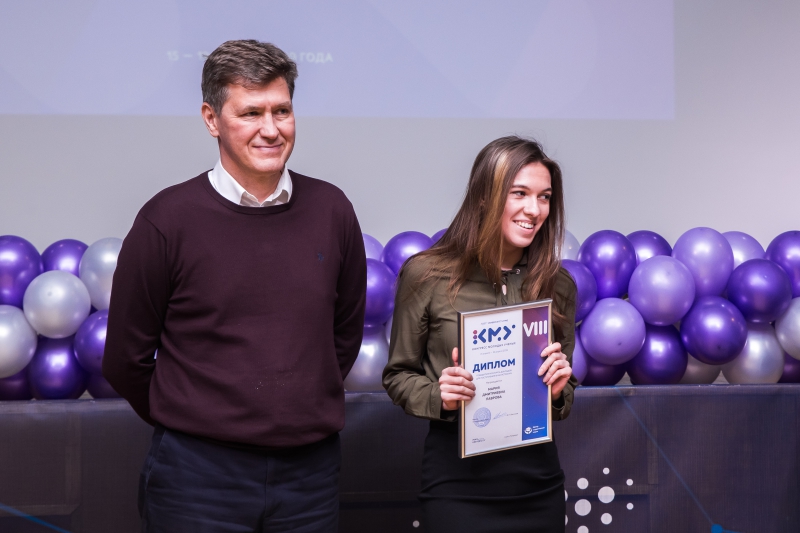
At the current stage, our work has purely theoretical value. No one has studied this bacterium and the properties of its regulation factors before, and our data is essential for understanding the mechanisms behind its stress resistance. In the future, it will be possible to use our results in genetic engineering for creation of such bacteria strains that would be resistant to any kind of factors; such strains can be used in bio-industry for synthesizing biologically active substances.
I want to continue my education at ITMO, namely at the SCAMT laboratory, and focus on the field of molecular biology.
Ekaterina Emelyanova, the Yaroslav-the-Wise Novgorod State University
Project: “Introducing waste sorting”
Waste sorting is currently a hot topic in Russia. When speaking about nationwide affairs, quite recently, our president endorsed a law on waste sorting. As for the more local matters, I can give an example of my home city Veliky Novgorod, where waste sorting events have been becoming all the more popular. As a person who participates in such initiatives, I have been interested in the associated issues since my third year at the university. What will introducing waste sorting require? Will it be viable in our city?
For this reason, I developed a project called “Assessing the opportunities for introducing solid waste sorting in a new residential district in Veliky Novgorod”. I studied my neighborhood and proposed various solutions for efficient waste sorting: possible locations of containers for different types of solid waste, different options for their purchase and transportation, the issues of cost-efficiency and so on. My project is currently analyzed by our local waste disposal company.
This year, I decided to not limit my research to my neighborhood only and conducted a survey among the citizens of Veliky Novgorod. It turned out that many people are ready to do waste separation, and some are already doing it; many participate in dedicated events. Such results really make me happy.
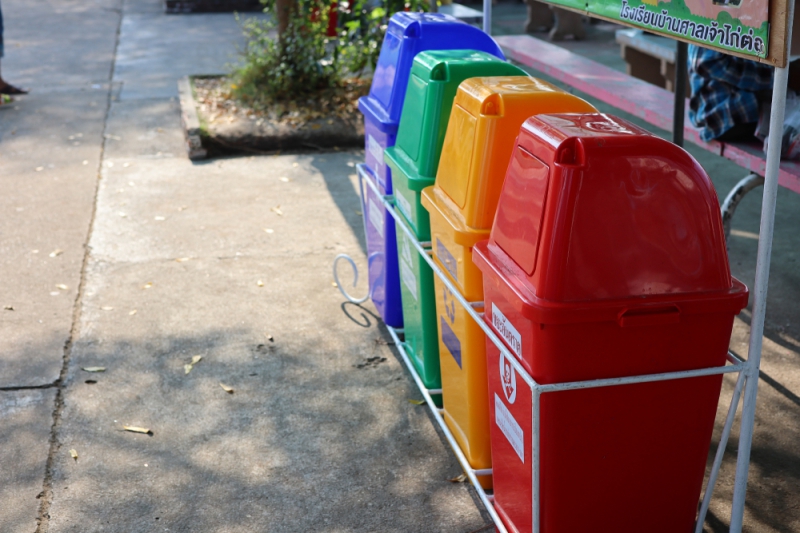
I am currently working with our city’s general education institutions. Some schools already collect particular types of waste like scrap paper, and I poll students to learn their opinion of waste separation as well as deliver short lessons on the topic, where I explain the practical aspects of waste separation.
Though I had considerable experience of presenting my project, doing a presentation at the Congress of Young Scientists wasn’t easy for me. I had to speak about my work to specialists from various fields who came from all around Russia. On the other hand, I was really interested in hearing their opinions and getting feedback. In the future, I plan to join ITMO University and follow its Industrial Ecology and Cleaner Production Master’s program.
Ekaterina Bogdanova, Samara State University of Economics
Project: “Development of social video platforms as marketing communication channels within the context of changes in consumers' values”
The success of TikTok, Like, Kwai is currently a widely discussed issue; for now, they are deemed the most innovative video platforms, a trend that shouldn’t go unnoticed by advertisers and marketing experts.
In my research, I studied the entire market of social video platforms, having focused on the above-mentioned applications. Based on my results, I recommend every company with an innovative outlook to start using TikTok as a new niche marketing channel and start organizing their first advertising companies. Consumers have always valued and will continue to value the quality of content, but they are already tired of the overabundance of social networks, they seem to not always trust major bloggers, and they have less and less time for watching videos. What’s more, they are often afraid to publish something that might be irrelevant.
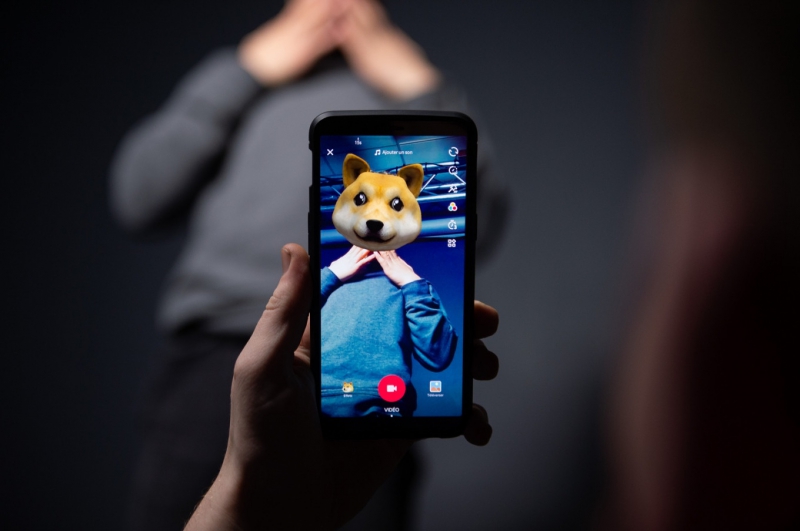
In the future, I plan to continue studying consumers’ perception of social platforms as channels of communication between brands and their audience at ITMO’s Innovative Marketing Master’s program.
Kirill Chap, the Ministry of Defence of the Russian Federation
Project: “Analysis of prospects of the practical applications of intellectual property in the digital economy”
Our state still hasn’t laid the groundwork for the development of the field of intellectual property. Every year, thousands of people and organizations send requests to the legislative authorities due to problems associated with getting approval of new products and ideas. This is, by all means, a relevant issue, and people organize forums dedicated to discussing such topics, though few share their experience.
As an employee at the Ministry of Defence, I work with the scope of tasks of the military science committee. We develop new programs that help save time and increase efficiency. What’s more, we conduct experiments in order to learn how well military personnel embraces new technological solutions. Since we represent an isolated group that works on classified projects, involving administrative resources is much easier, and we are able to work with intellectual property way faster.
I have some ideas concerning the establishment of a correct procedure for approving documents and decreasing the uncertainty in this field. But before testing them, I want to learn in more detail how such issues are solved in civilian life. As I met many ITMO graduates in my line of work, I know well that they have a great level of training, and so I decided to join this university. This will help me get the knowledge I need and establish the necessary contacts. I hope that I will once succeed in bringing together a team, and we will develop the instruments necessary for creating an effective and convenient system that will help collaborate with the administrative systems rather than struggle against them.
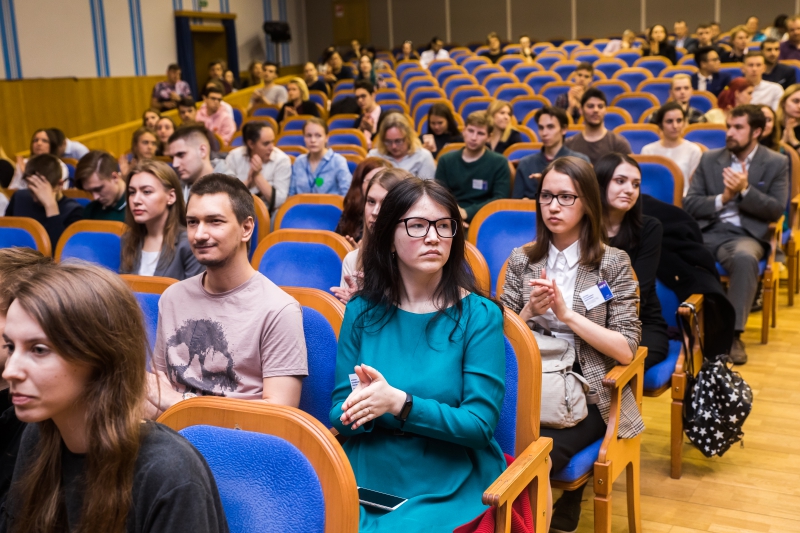
Vladislav Jizulskiy, Far Eastern Federal University
Project “Automation of development of work schedules with the use of AI methods”
Optimizing operations in business and manufacturing has always been a relevant issue. Progress in this field can help raise profits and products’ quality, which is why it is something that many strive to achieve. Unfortunately, people and companies in the East of Russia are often reluctant to accept new technologies. In order to draw the necessary attention and show technologies’ relevance and benefits, I decided to develop a program that visualizes a part of an enterprise’s information system.
As a native of Vladivostok, Far East’s biggest trading and tourist center with a great many enterprises that focus on shipbuilding and ship repair, I decided to visualize an information system of a shipyard. My project will help plan a specialized plant, design dedicated storage spaces, choose suppliers, organize the manufacturing operations and automatically draft its work schedule: a sequence of tasks that accounts for deadlines, equipment and executors.
From the many methods of machine learning, I chose to use a genetic algorithm. Since the task of drafting a work schedule is solved by trying all possible combinations, using standard algorithms for this task would’ve taken months, especially if we were to increase the amount of data – and there are dozens of machines and thousands of items involved in the operation of an enterprise. Using a genetic algorithm makes it possible to define a multitude of points in a field and combine solutions, thus getting new ones. This helps save much time on every task.
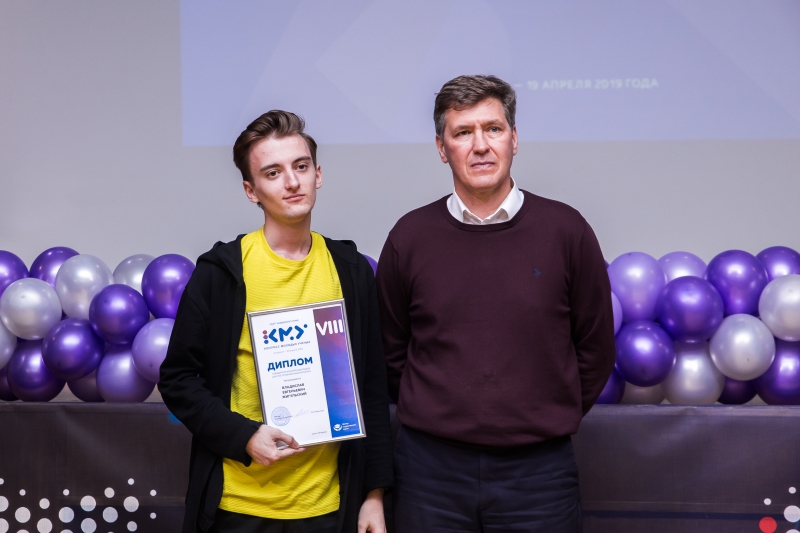
In my opinion, the hardest part of the project had to do with formalizing and normalizing the data used for the genetic algorithm, as well as creating a database. The target function was minimizing the runtime of a machine with a maximum workload. Accounting for all limitations was no easy task, either.
In the end, I developed a working program that demonstrates the benefits of the adoption of digital manufacturing. In the future, I plan to finalize it and present at some forum. This way, I will gather essential feedback and get noticed by enterprises.
Ekaterina Azarkina, National Research University Higher School of Economics
Project: “Specifics of using innovative marking practices in the banking sector”
Nowadays, the banking sector makes use of the most advanced technology, from AI to the latest trends in SMM. Having this in mind, I decided to study the marketing tools and practices that are currently used by banks. In order to do that, I interviewed marketing experts: learned about their activities that have to do with new technologies (development of mobile and internet banking, chatbots, the use of AI, VR and AR technologies) and social networks (situational marketing, YouTube channels, educational blogs and webinars).
Communication with representatives of companies has become one of the most interesting and enlightening parts of my research, as I succeeded in identifying multiple issues associated with companies’ operation that you won’t find in any public source. The practices I marked out will definitely be useful for specialists working in other fields, as well. For now, I am still working on my research by interviewing more respondents in order to clarify my results.
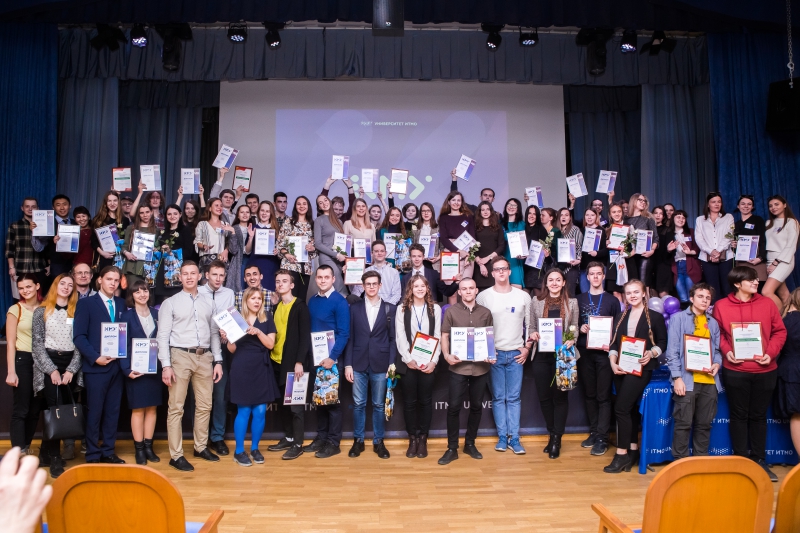
Funnily enough, I registered for the Congress of Young Scientists at the very last moment, as I wasn’t sure whether it was worth participating in. I am really glad that everything worked out fine, and I am now getting ready to continue my education at the Innovative Marketing program of ITMO’s Faculty of Technological Management and Innovations.
